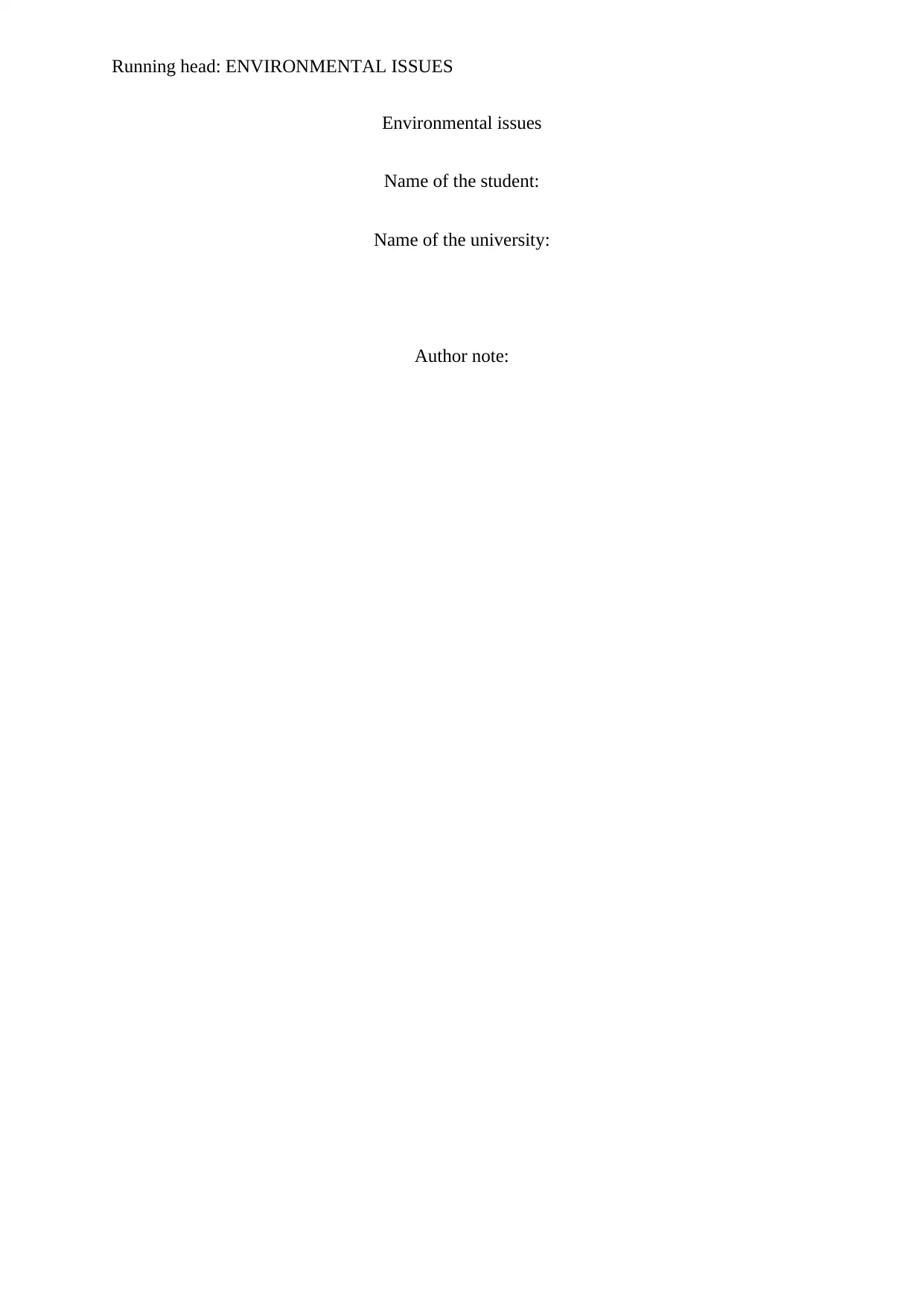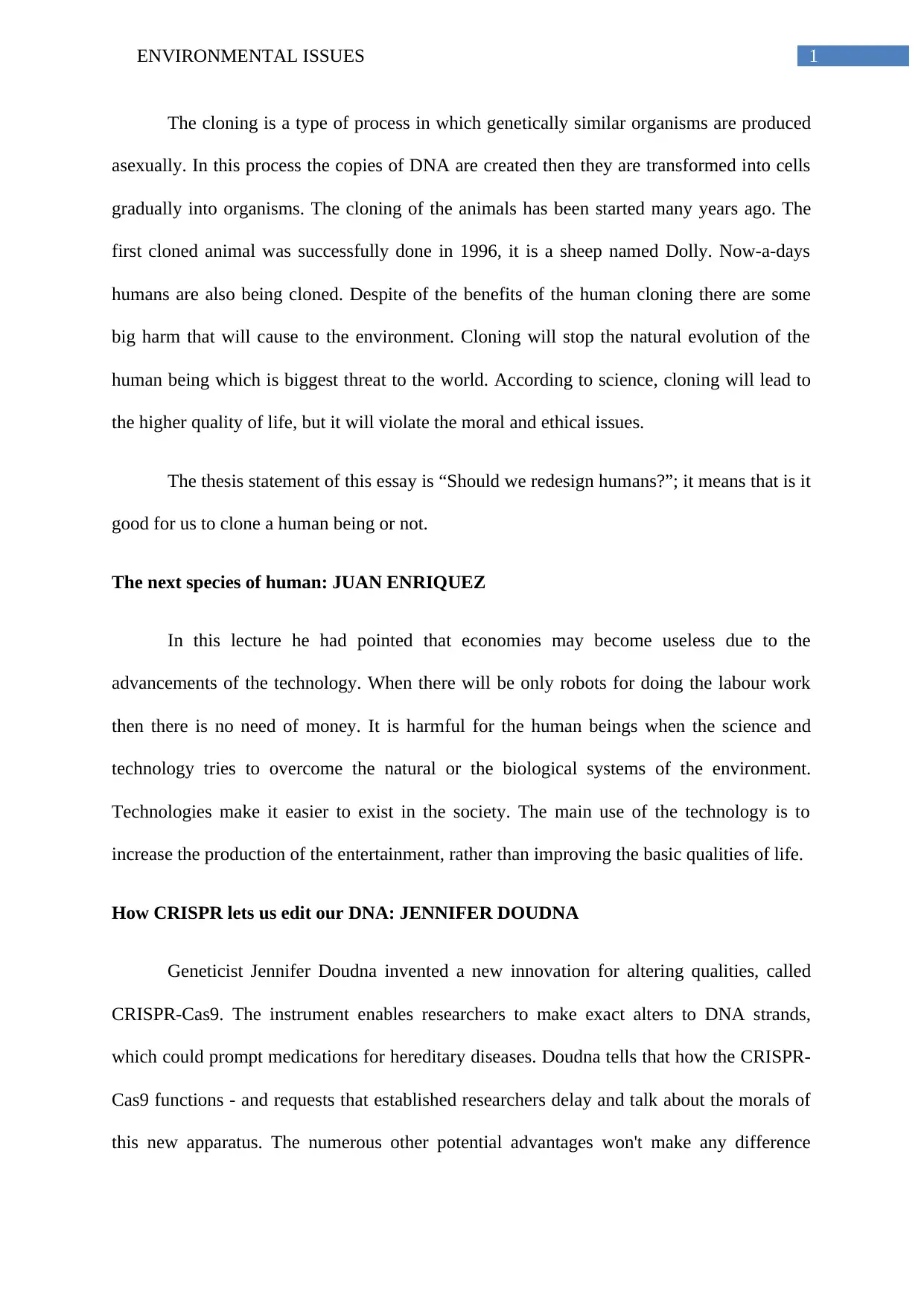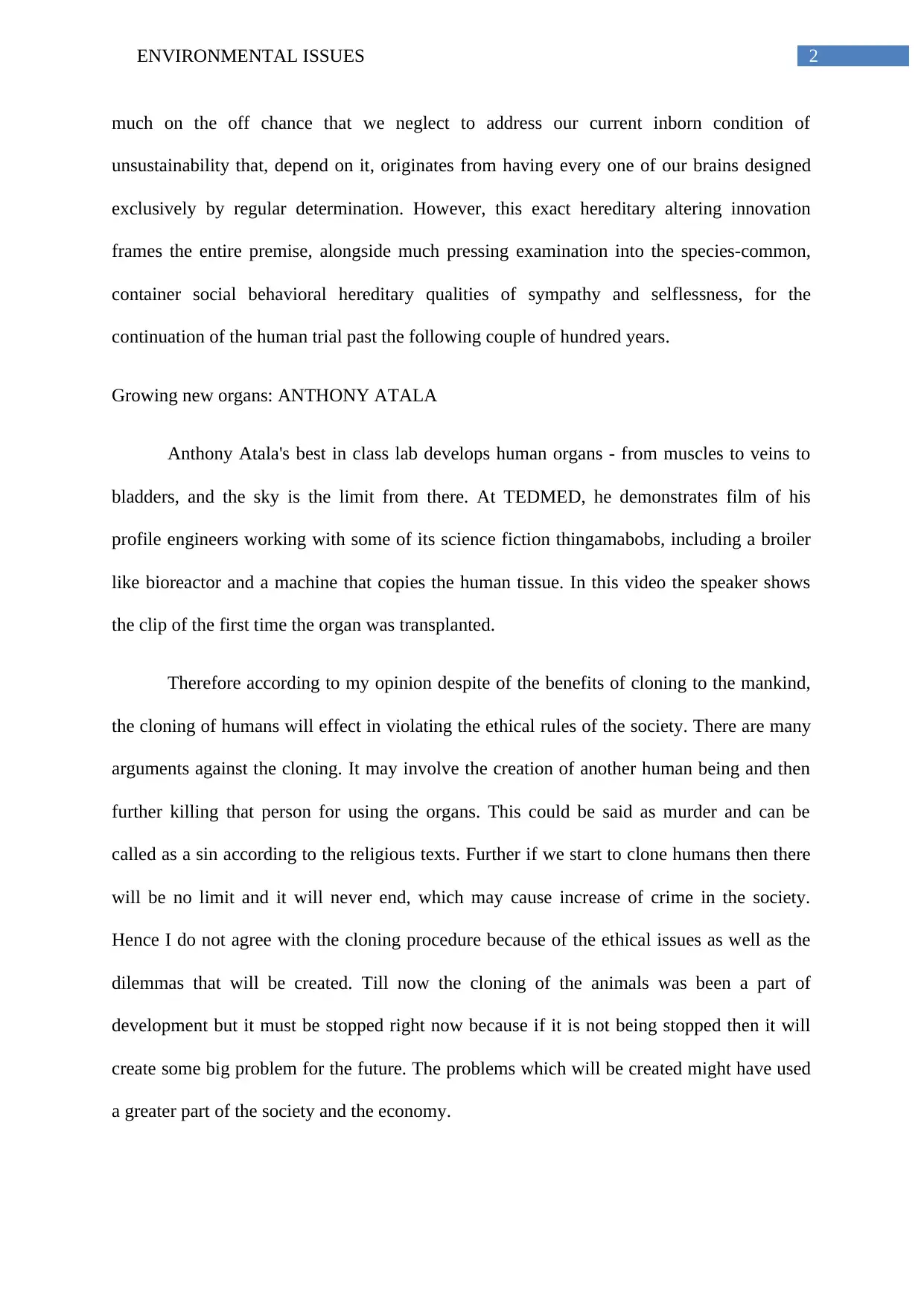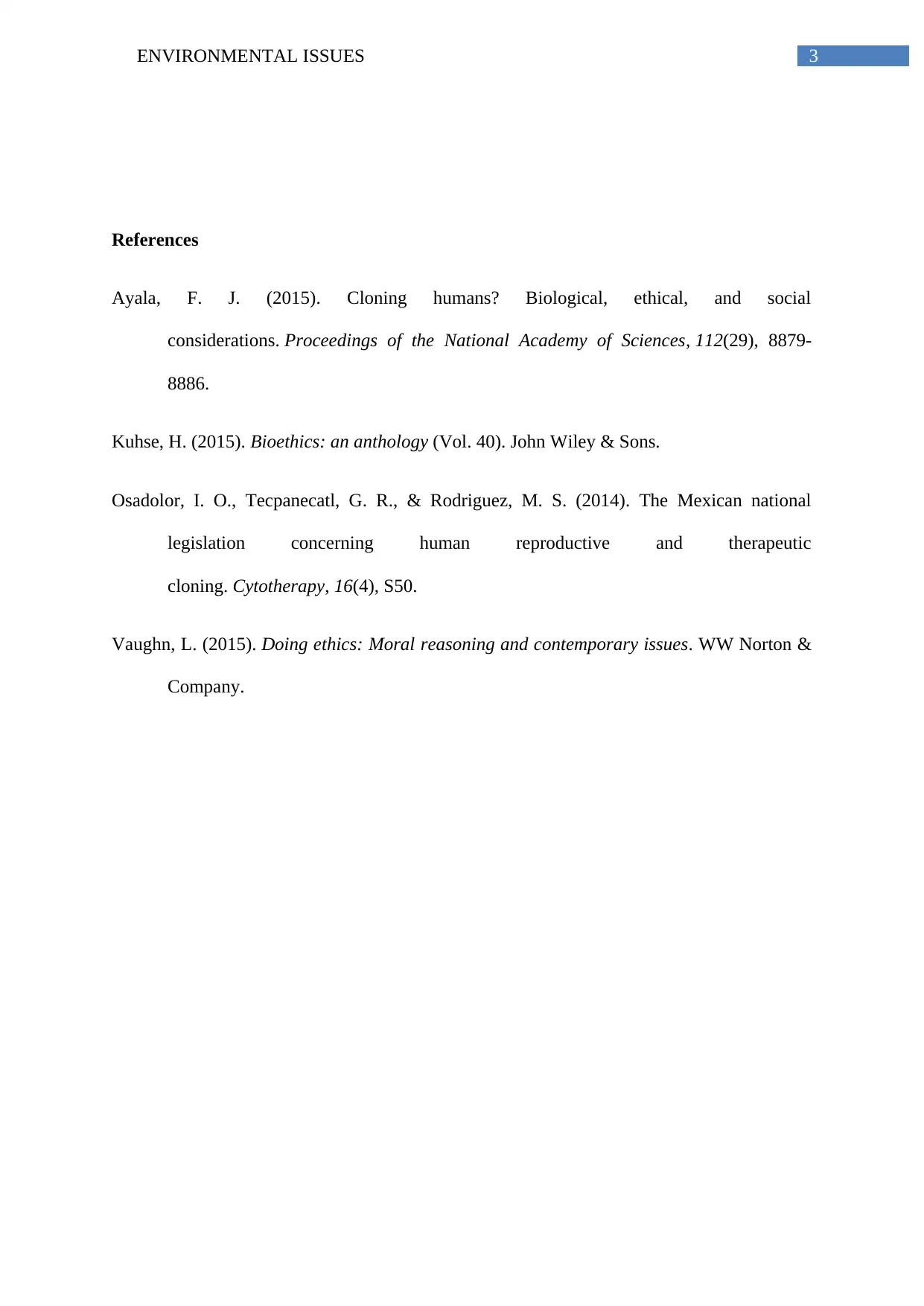Environmental Issues: An Essay on Cloning, Ethics, and Sustainability
VerifiedAdded on 2020/04/29
|4
|839
|57
Essay
AI Summary
This essay addresses the complex and controversial topic of human cloning, exploring its potential environmental and ethical implications. The author begins by defining cloning and highlighting its historical context, including the successful cloning of Dolly the sheep. The essay poses the central question of whether humans should be redesigned through cloning, referencing lectures and scientific advancements. It discusses the potential impact of technology, as highlighted by Juan Enriquez, and the role of CRISPR technology, as explained by Jennifer Doudna, in altering DNA. The essay further considers the development of human organs by Anthony Atala. The author concludes by expressing strong opposition to human cloning due to the ethical issues and potential societal dilemmas it raises, including the potential for murder and increased crime. The essay emphasizes the importance of halting human cloning to prevent future problems impacting society and the economy, citing several academic references to support the arguments presented.
1 out of 4







![[object Object]](/_next/static/media/star-bottom.7253800d.svg)